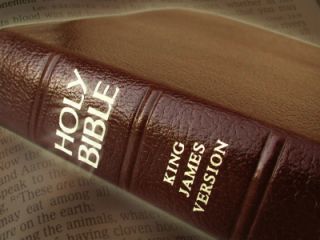History Channel’s “The Bible” was the brainchild of a Hollywood husband and wife who wanted to tell the biblical stories in a way that would resonate with as many people as possible, according to a March 1, 2013, Deseret News article by Jamshid Ghazi Askar titled “Hollywood powerbrokers bring Bible to life in new TV miniseries.”
Actress Roma Downey, best known for her role in CBS’ “Touched by an Angel,” and her husband, Mark Burnett, producer of reality TV shows “The Apprentice” and “Survivor,” used their combined expertise to executive produce the 10-hour miniseries, according to the article. They started making plans for the project that would eventually become “The Bible” in 2009, according to the article.
 “All the other things we’ve done— all the experience and the wisdom and the gifts that we’ve picked up along the way— have brought us to this moment,” Downey said in the article. “We made ‘The Bible’ to glorify God, and it will go out across the globe and it will touch people’s lives— people we may never meet, in places we may never visit.”
“All the other things we’ve done— all the experience and the wisdom and the gifts that we’ve picked up along the way— have brought us to this moment,” Downey said in the article. “We made ‘The Bible’ to glorify God, and it will go out across the globe and it will touch people’s lives— people we may never meet, in places we may never visit.”
Downey said that “The Bible” was created with both Christians and non-believers in mind, according to the article. “We wanted to tell these stories in a way that would emotionally connect, be exciting and feel epic in scope on the one hand but still have the intimacy and the emotional connection on the other hand.”
“The Bible,” Burnett said in the article, has received much support from Christians. “Across all denominations of Christianity, we have been supported. Mormon, Catholic, evangelical, Methodist, Presbyterian—what unites us for Jesus and faith and the Bible is greater than the differences that may at times divide us. Really, that’s so important.”
The first of five episodes aired March 3, 2013, and approximately 14.8 million Americans tuned in, according to the article— “easily outdistancing ratings stalwarts like CBS’ ’60 Minutes’ (11.9 million viewers) and NBC’s ‘Dateline’ (6.1 million).”
Conservative television and radio personality Glenn Beck said everyone in his demographically diverse family had a positive reaction to the show, according to the article.
“I watched the first four hours with the whole family—with my 24-year-old daughter all the way down to my 6-year-old daughter. Every single person in the family loved it for a different reason. … My in-laws who are Catholic watched it with us; most of my family is LDS; my 21-year-old daughter is non-denominational, and her husband is more of an agnostic. And we all found our way to (love) it. It is the story of us all— in Western civilization, this is the story of how it started,” Beck said in the article.
Hollywood has been dramatizing the Bible “ever since the advent of motion-picture technology,” according to the article, and that can pose challenges. Director Cecil B. DeMille is “one of the all-time giants of film adaptations,” and his credits include “The Ten Commandments” (1923), “The King of Kings” (1927), “Samson and Delilah” (1949) and a 1956 re-make of “The Ten Commandments,” according to the article.
“The biggest obstacles (to Bible adaptations) were ones that DeMille freely admitted when he was making his ‘Ten Commandments,’ both the first version in 1923 and the second version released in 1956,” said James D’Arc, author, film historian and curator of Brigham Young University’s Motion Picture Archive, according to the article. “And that is (insufficient) details of a story to make a seamless motion picture. He admitted that the early life of Moses in Egypt was one that presented some very perplexing problems: What was it like growing up? And why exactly was he banished?”
While “the 1956 movie ‘The Ten Commandments’ had to account for a lot of unknown details in order to stretch the dramatization of a single life across 220 minutes,” according to the article, “The Bible” miniseries had the opposite dilemma— the story “runs the gauntlet from Genesis to Revelations in 10 hours. Thus, Downey and Burnett were more burdened with selecting which stories to include in their work than figuring out how to account for circumstances and situations unrecorded in scripture,” according to the article. Makers of “The Bible” consulted a team of 40 religious scholars and theologians on an ongoing basis to ensure historical accuracy, according to the article.
“The Bible” miniseries sets itself apart from its counterparts of yesteryear with cutting-edge chops, according to the article. England-based Lola studio— which created special effects for “Gladiator” and “Troy”— rendered the CGI animation for the miniseries “that brings stories like Noah’s Ark to life like never before,” according to the article. Oscar-winning composer Hans Zimmer scored “The Bible.”
“This looks like it’s a $100-million movie,” Downey said.
“This is not cheesy,” Beck said. “I see a lot of cheesy Bible stuff; this is not one of those things. This is (for people) who believe in the Bible and want to see really good, quality stories that reflect who we are.”
This article was written by Lisa Montague, a member of The Church of Jesus Christ of Latter-day Saints.
Additional Resource:
